#ben bradlee
Text
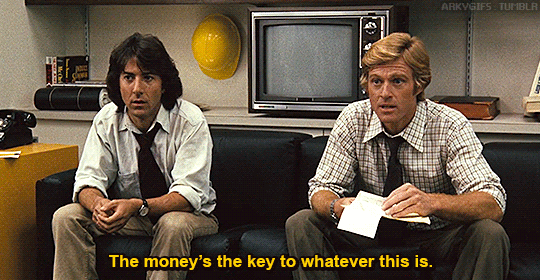
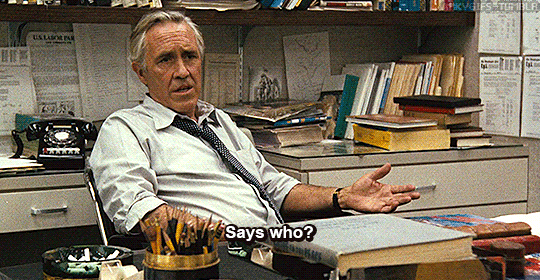
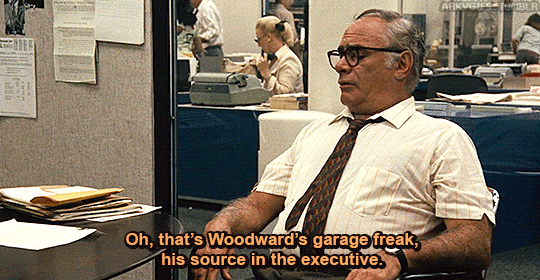
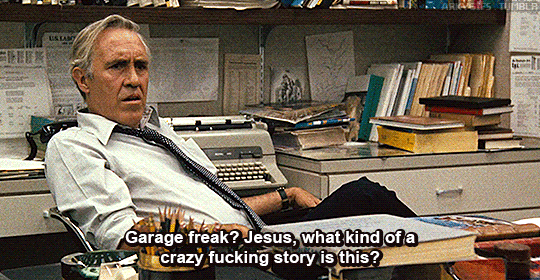
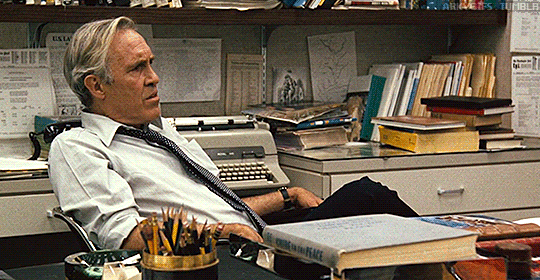
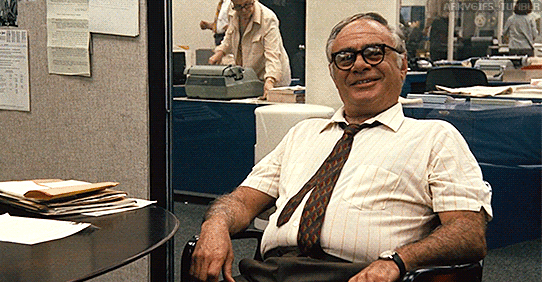
All The President's Men (1976)
#All The President's Men#Alan J. Pakula#Bob Woodward#Ben Bradlee#Howard Simons#Robert Redford#Jason Robards#Martin Balsam#Carl Bernstein#Dustin Hoffman#funniest real life fact about this#arkygifs
50 notes
·
View notes
Text


Arms crossed and...

...and the thing...
110 notes
·
View notes
Text
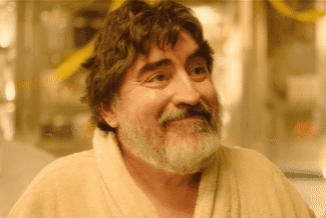

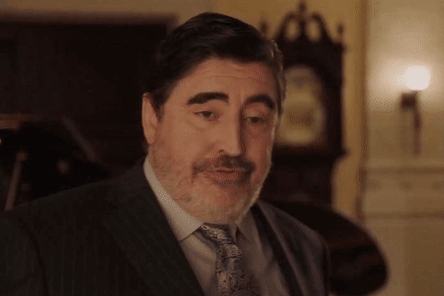
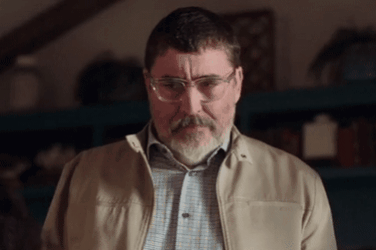

2018
#pretty good year#my god#he's so fine#damn#i'm down so bad for peepaw#and i have no shame#i find this senior citizen hot as fuck#there i said it#lol#girl stop#sam did it#ben bradlee#the front runner#ray hernandez#saint judy#max#i feel bad#vice (2018)#my sweet alfredo#my heart#❤️❤️❤️❤️#alfred molina
40 notes
·
View notes
Photo

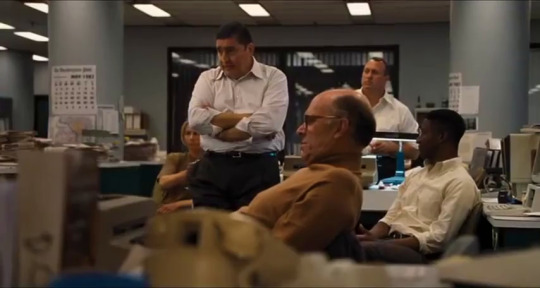

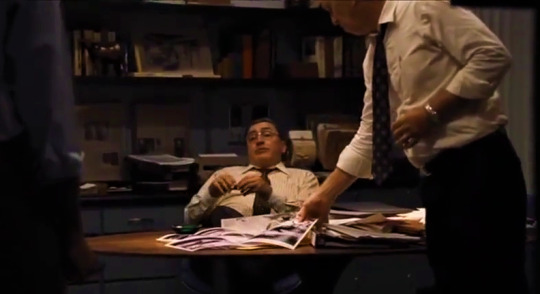


You all need to see The Front Runner cause he looked extremely fine in it
#look I couldn't breathe#why is this man so fine#movie recs#alfred molina#the front runner#screencaps#my edits#his voice....his entire look#ben bradlee
119 notes
·
View notes
Text
Periodisme
Aquesta setmana han començat les classes a la Facultat de Periodisme. En els pròxims dies, ens algun moments o altres, als alumnes de primer els explicarem algunes de les definicions que sobre l’ofici de periodistes s’han fet.
N’hi ha tres que em semblen encertadíssimes. La primera, explica en què consisteix l’ofici. No recordo exactament de qui és, però sempre penso que la vaig treure del…
View On WordPress
0 notes
Photo
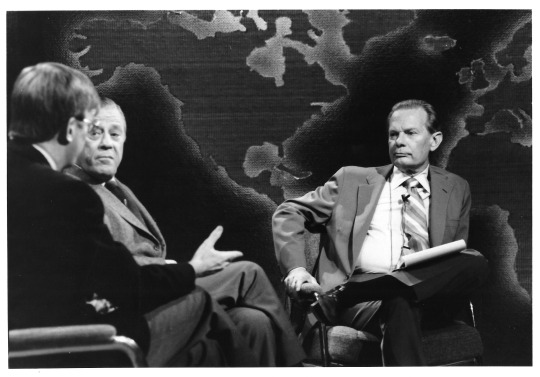
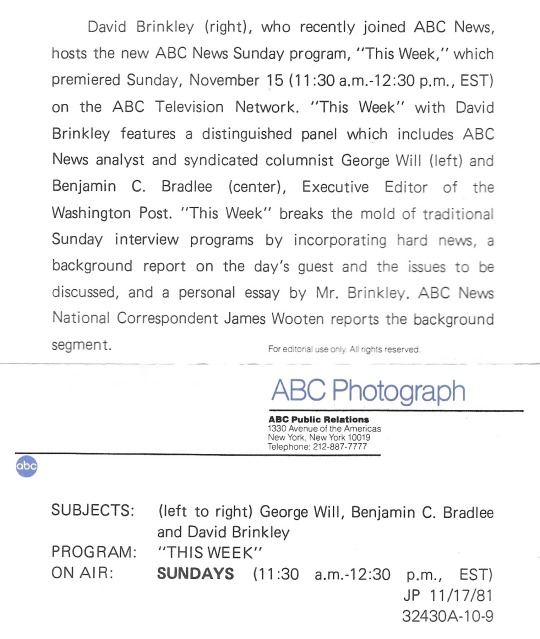
David Brinkley hosted This Week from 1981 to ’96. Now in its 41st year on ABC, the Sunday-morning news program is hosted by George Stephanopoulos, Martha Raddatz, and Jonathan Karl.
0 notes
Text
Few Thoughts on a Few Things • VIII
As I've mentioned before, I love seeing people get into health and fitness. Whatever brings people to explore this world, I'm all for it. Sadly, there were periods when gatekeeping in the fitness world was the norm. In some aspects, it still is, but it has improved. I generally think CrossFit is goofy as fuck, but I have always appreciated that it introduced a lot of people to fitness who otherwise probably would be less inclined to get into it. The only issue there is that there's a high propensity to learn extremely bad habits and form. Anyhow, a short article about how it's all changed over the past few years. "Americans have changed the way they exercise. Here’s how gyms are adapting"
I recently watched a pretty fascinating documentary on Ben Bradlee (HBO). Maybe fascinating is strong, but I'm generally intrigued by all things 1970s. Bradlee was an interesting cat, no doubt, but the story — particularly Washington Post's taking on the final releases of the Pentagon papers, and subsequently, Watergate, Nixon, etc. — served as yet another reminder that conservatives by-and-large have always been tremendous liars. Considering more recent events — Trump, Santos (and now a few more), ffs every goddamned republican in congress tbh — it's easy to think of this period in a vacuum. The "can the GOP get back to ..." Well, back to when? The entire Bush administration began as a farce, and the lies brought war and death to hundreds of thousands, if not millions. Bush #1? Look at where he came up, his involvement in Iran-Contra, and, well, being part of the Reagan admin ffs. It goes on and on. Was there ever a time when conservatives carried even a modicum of integrity? It's actually incredible to think about.
Ya know what? I feel like Pedro Pascal is a good dude. For no reason, I have a mental note of top blokes I feel are (or were) good dudes. Most men are shit; the world needs more good dudes. My list: Bob Ross. Fred Rogers. LeVar Burton. Dave Grohl. And now, Pedro Pascal.

Disagree, NPS! Much like escaping from zombies, you don't have to be the fastest person, you just have to be faster than the slowest!
#thoughts and rants#fitness#cnn#gyms#hbo#documentary#ben bradlee#1970s#top blokes#pedro pascal#national park service#twitter#fuck conservatives
0 notes
Text
Whenever I read atpm, my mind’s eye makes a split screen like 2 player Mariokart wherein one side is the scene I’m reading being portrayed by the actors from the movie and the other side is the same thing but with their real life counterparts.
#i can imagine anything#all the president's men#it’s supposedly fashionable on this website to post run on sentences#Robert Redford and Jason Robards on the right side#the real Bob Woodward and Ben Bradlee on the left side#I’m not…..entirely sure…..how I conditioned myself to do that……#occasionally there is a Secret Third Screen where they’re cartoons. and it makes me want to do a character lineup for animated atpm#there are just so many good scenes in the book that could have been wonderfully adapted into the movie#not that I wish the movie was any different!!!!#it is just fun to Daydream
3 notes
·
View notes
Text
This was. A truly terrifying movie. Important. But terrifying
#spotlight#ben bradlee jr#walter robinson#marty baron#michael rezendes#matt carroll#sacha pfeiffer#eric macleish#mitchell garabedian#eileen mcnamara
0 notes
Text

“Something you said in the country stoned me so- that you hoped I would marry again. You were close to us so many times. There is one thing that you must know. I consider that my life is over and I will spend the rest of my life waiting for it to really be over.”
Jackie Kennedy in a letter to Ben and Tony Bradlee, close friends to the Kennedy’s.
#jackie kennedy#jacqueline kennedy#vintage#icons#the kennedys#jackie o#1960s#60s#60s icons#jfk#john f kennedy#60s vintage#60s women#60s 70s 80s 90s#60s hair#60s aesthetic#60s girl#1960s vintage#1960s television#1960s fashion#1960s aesthetic#1960s icons#vintage celebrities#vintage fashion#vintage beauty#vintage style#first lady#jackie onassis
78 notes
·
View notes
Text
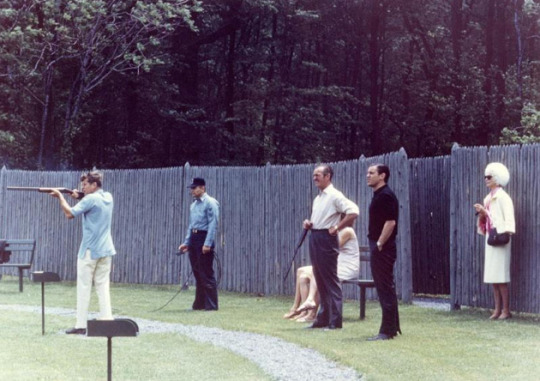
John F. Kennedy shoots skeet at Camp David, 1963. Watching him on the right are David Niven, Ben Bradlee, and Hjördis Paulina Tersmeden, Niven’s wife. (Jackie Kennedy is likely on the bench.) Here is a brief clip of them shooting skeet.
youtube
9 notes
·
View notes
Text
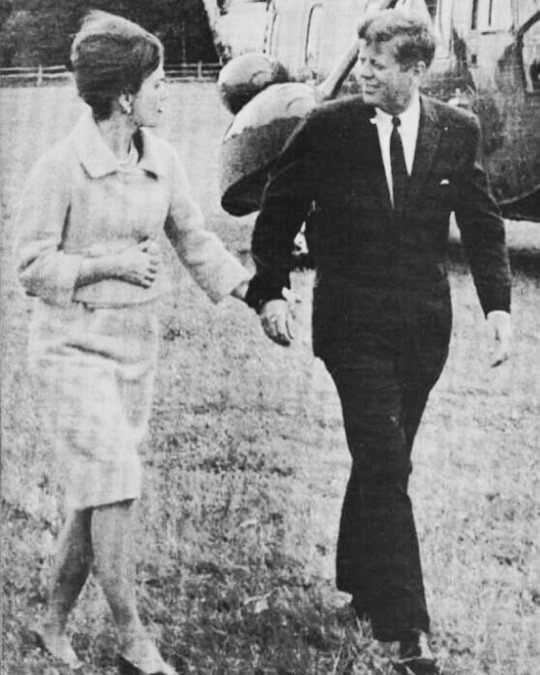
“Jackie abruptly switched gears and began teasing her husband about his fondness for Ben Bradlee's wife. ‘Oh, Jack, you know you always say Tony is your ideal.’ The president went along with the joke - ‘Yes, that's true’ - before looking into his wife's eyes and suddenly turning serious. ‘You're my ideal, Jacqueline,’ he said.”
- an excerpt from ‘These Few Precious Days’ by Christopher Andersen
why were they so cute😭
#jfk#john f kennedy#jack kennedy#john fitzgerald kennedy#john f. kennedy#president kennedy#jackie kennedy#jacqueline kennedy#jacqueline bouvier kennedy#president#jacqueline#jbk#jackie#kennedy family#first lady#the kennedys#america#1960s
170 notes
·
View notes
Text

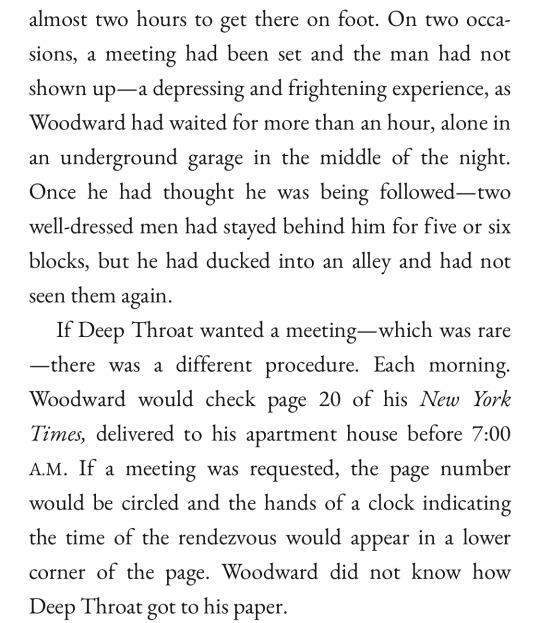
hysterically someone a while back wrote in nymag about finding a memo in ben bradlee’s archive being like “idk i kinda think he might have been bullshitting me on the flower pot parking garage stuff” but that makes this i think an even wilder addition to the tale. as per the piece woodward was like grievously offended to have any aspect of his reporting doubted and bradlee was like “i mean who cares you did great work we all punch it up” which is even funnier.
18 notes
·
View notes
Photo
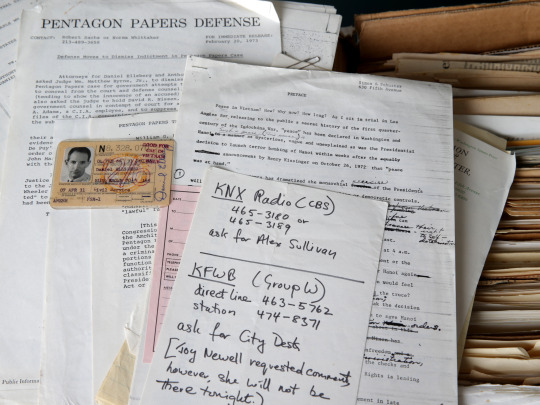
Daniel Ellsberg, who has died aged 92, was the most important whistleblower of our times. His 1971 leaking of what became known as the Pentagon Papers showed conclusively that virtually everything the American public had been told by its leaders about the Vietnam war, from its origins to its current conduct, was false.
The leak itself did not end the war, and Ellsberg regretted not having come forward years earlier. He spent the rest of his life as a peace activist, encouraging others on the inside to reveal government malfeasance, and supporting those who did, including the 2003 GCHQ whistleblower Katharine Gun. But his leaks did result in a landmark decision in favour of freedom of the press, and, ironically, led to the downfall of the US president Richard Nixon. It is not unreasonable to set Ellsberg’s leak alongside President John F Kennedy’s assassination as the ground zero of today’s distrust of politics.
Before working on the Pentagon Papers, officially a study titled A History of Decision-Making in Vietnam 1945-68 commissioned from the Rand Corporation research organisation by the secretary of defense Robert McNamara, Ellsberg had spent two years at the US embassy in Saigon, advising on General Edward Lansdale’s “pacification” programme. As he sifted through the material gathered for the report, including evaluations which deemed the war unwinnable, he realised the enormity of the political fraud.
He began copying the documents, with the help of a former Rand colleague Anthony Russo, and in 1971, as the US extended the war with bombings of Laos and Cambodia, resolved to make them public. The chair of the senate foreign relations committee, William Fulbright, turned him down, as did the Washington Post’s editor Ben Bradlee and owner Katharine Graham; Graham was close to the secretary of state Henry Kissinger, who had known Ellsberg at Harvard; he advised her Ellsberg was “unbalanced and emotionally unstable”. Matthew Rhys played Ellsberg in the 2017 film The Post which loosely covers those events.
Neil Sheehan of the New York Times was a reporter Ellsberg admired in Vietnam; Sheehan convinced the Times to take the papers, the first instalment of which revealed that the Gulf of Tonkin incident, the casus belli which launched full-scale US participation in the conflict, had been bogus.
The Nixon administration obtained an injunction prohibiting further publication; the supreme court’s overturning of that injunction, dismissing the idea of “prior restraint”, remains a cornerstone of US journalistic freedom. But leakers themselves were not protected. Ellsberg was hidden by anti-war activists while Mike Gravel, the US senator from Alaska, entered most of the leaked papers into the congressional record, and the Post played catch-up.
Meanwhile Nixon, furious at the leaks, created the so-called “plumbers” covert special investigation unit, to discover if Ellsberg had further material that might affect him directly, and to discredit him. When the plumbers’ bungled break-in at the Watergate offices revealed an earlier burglary of Ellsberg’s psychiatrist’s office, the ensuing chain of scandal and cover-up eventually forced Nixon’s resignation to avoid impeachment.
Ellsberg grew up the very definition of a true believer in America. Both his father, Harry, a structural engineer, and mother, Adele (nee Charsky), were the children of Russian Jewish immigrants, but had converted to Christian Science. When Daniel, born in Chicago, was six, his father found work in Detroit, building Ford’s massive Willow Run factory.
Daniel won a scholarship to the elite Cranbrook school in the Detroit suburbs; a talented pianist, he practised for four to six hours a day to fulfil his mother’s dream. But in 1946, rushing to Denver for a family gathering, his father fell asleep while driving and rammed into a bridge. His mother and younger sister, Gloria, both died; Daniel recovered from his severe injuries, but ceased playing the piano.
He won a scholarship to Harvard, where he studied economics, edited the college paper, and finished third in his class. Upon graduation he married a Radcliffe student, Carol Cummings, whose father was a colonel in the Marine Corps, and took up a Wilson fellowship for a year’s study at King’s College, Cambridge. In 1954, accepted as a Harvard junior fellow to pursue his doctorate, he instead joined the Marines, becoming a rare first lieutenant given command of a full company.
He returned to Harvard in 1957. His dissertation, Risk, Ambiguity and Decision, contained what is now known as the Ellsberg paradox, which delineated how the preference for well-defined probabilities, over the uncertainty of ambiguity, influences decision-making, especially as it reinforces preconceived ideas. It became an important part of game theory, and Ellsberg went to work for Rand on the Department of Defense’s Command and Control research, much of which was devoted to spit-balling Fail Safe/Dr Strangelove scenarios, as detailed in his 2017 book The Doomsday Machine: Confessions of a Nuclear War Planner.
In 1964 he went to the Department of Defense, as special assistant for international security to McNamara’s number two, John McNaughton, before moving to the State Department and Vietnam. In 1967 he rejoined Rand to work on McNamara’s project, but was increasingly tormented by Kissinger and Nixon’s Vietnam policy; they believed that if the US opened relations with China and entered into a detente with Russia, those countries would pressure North Vietnam to come to the table while the US bombed incessantly.
Ellsberg began joining anti-war campaigners, including the poet Gary Snyder, and was inspired by Randy Kehler, a draft-resister who spoke of welcoming imprisonment for his belief. Ellsberg left Washington for MIT’s Centre for International Studies a year before leaking the papers. His first marriage had ended in divorce; in 1970 he married Patricia Marx, a peace activist.
In June 1971, he surrendered himself to the US attorney in Boston; asked on the courthouse steps how he felt about going to prison, Ellsberg replied: “Wouldn’t you go to prison to end this war?” He became the first civilian charged with violating the 1917 Espionage Act, and faced a maximum sentence of 115 years. The District Court judge William Byrne ruled irrelevant his public-interest defence, that the documents were “illegally classified”, and so it has been for every whistleblower since. But Byrne eventually dismissed the case because of government malfeasance, including the plumbers’ break-ins, as well as Nixon’s wiretapping of Kissinger’s aide Morton Halperin, and John Ehrlichman’s offering Byrne the directorship of the FBI.
In 1974, Ellsberg’s moving interviews were a major part of the Oscar-winning Vietnam documentary Hearts and Minds. In 1978 he was awarded the Gandhi prize by Promoting Enduring Peace. In the next 40 years he was arrested around 50 times at anti-war protests. He likened the weapons of mass destruction excuse for invading Iraq in 2003 to the Gulf of Tonkin affair, and over the years supported leakers who revealed government deceptions, including Edward Snowden, Chelsea Manning and Reality Winner, who was sentenced to five years in prison for leaking a single page from an in-house National Security Agency magazine showing the NSA had concluded Russia interfered in US elections, while the government was maintaining they had not.
He recognised a practical corollary to the Ellsberg paradox: the more secrets you are able to access, the less able you become to act sensibly with them. In 2021, Ellsberg released government memos from 1958, showing that the joint chiefs of staff had prepared a nuclear first-strike against Chinese bases on Quemoy and Matsu during the Taiwan Strait crisis, with a full nuclear attack planned on China should they respond. His point was that little had changed since the Pentagon Papers.
Ellsberg was played by James Spader in the 2003 film The Pentagon Papers, and was the subject of a 2009 documentary, The Most Dangerous Man in America. His memoir, Secrets, appeared in 2003 and in 2021 Risk Ambiguity and Decision was updated as a book, once again challenging the concept of rational decision.
Ellsberg is survived by his wife and their son, Michael, and his son, Robert, and daughter, Mary, from his first marriage.
Daniel Ellsberg, military analyst and political activist, born 7 April 1931; died 16 June 2023
Daily inspiration. Discover more photos at http://justforbooks.tumblr.com
22 notes
·
View notes
Note
Aaaaaaaaaaa the chicago manual of style!!!
yesssssss my oneshot from the pov of my beloved barry sussman as he tries to make everyone else deal with his two hopelessly indiscreet reporters rather than sitting down and giving them The Talk himself <333
here is a bit of it:
“Equestrianism is a sport; you’re just ignorant,” Bernstein says cheerfully. Then his frown returns and he addresses Bradlee. “Come on, Ben, I’m not a cub. I’ve been a reporter for nearly a decade. Woodward’s a cub.”
Woodward lets it roll off his back. “I’m older than you are.”
“You’re both cubs until I say you’re not,” Bradlee says, in a tone that brooks no argument, though Bernstein looks prepared to start one anyway. “Especially when you act like green reporters who’ve never heard the term work-appropriate.”
Woodward and Bernstein freeze.
“Are you sure we’re not being fired?” Bernstein asks weakly.
5 notes
·
View notes
Photo

According to the mid-century florist Constance Spry, by midday on the date of your party you should have turned “the contents of two tins of turtle soup into a pan”, added a glassful of dry sherry and left it “ready for reheating”.
Your main course, Spry wrote in her 1961 entertainment manual Hostess, sauté of beef with button mushrooms and jellied stock, should be ready. The pancakes for your crêpes pralinées must be “spread out” primed to be baked, smothered with praline butter and rolled “in the shape of a cigar”.
You must have trimmed your flowers to below eye level and shined the silver. The sherry glasses should be polished and ready to quench the thirst of the turtle-soup eaters.
The resulting evening would, in theory, have had the shape and appearance of a dinner in one of England’s finest country houses at the time Spry was writing the book. But rather than taking “a thirty-six person staff” — as it would have in the 1930s, according to butler and writer Arthur Inch’s own handbook, Dinner is Served (2003), this meal could be prepared and served entirely by a lone woman. (There is no suggestion that a man attempt it.)
The years following the second world war saw a slew of such hosting guides, each promising to unlock the secrets to gracious party-throwing. Done right, they tantalise. A party can unlock access to a new milieu and even advance your career. Do parties today still carry the kind of social weight they did back then, or even at the tail-end of the 1990s when another author, Sally Quinn, who was married to the then Washington Post editor Ben Bradlee, irreverently dissected Washington’s glitzy social scene? And is there anything we can still learn from these doyennes of entertaining?
The party scene has certainly evolved for women. In Dinner is Served, which draws on Inch’s lifetime experience as a butler serving Churchill and the Queen Mother, and, later, as technical adviser on Robert Altman’s Gosford Park (2010), he notes that not only were ladies seated for dinner first but that, in the name of chivalry, ladies should actually already be seated “before the men enter the room”.
[Financial Times :: via Scott Horton]
#dinner party#Scott Horton#fine dining#parties#history#social secrets#food#recipes#entertaining#dinner#style#party#the party scene#setting the table
21 notes
·
View notes